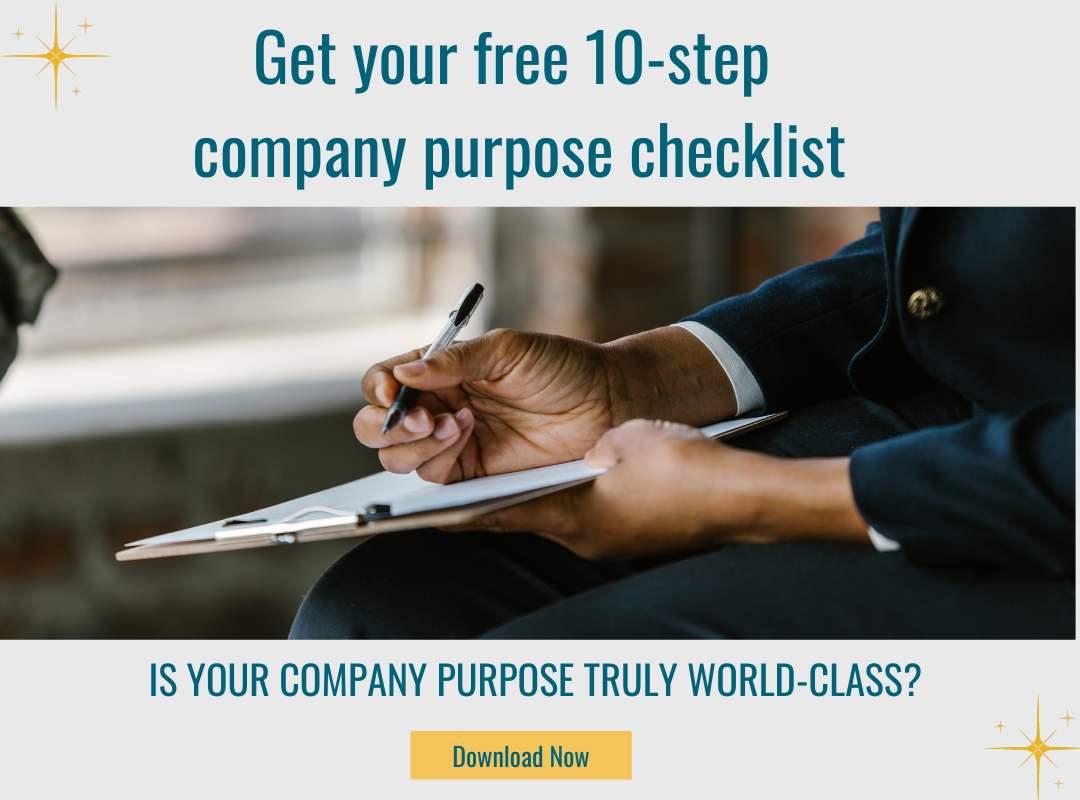The Stakeholder Capitalism Model in Practice
Jan 14, 2023
By Meghan French Dunbar
Our current definition of stakeholder business is: a company that strives to optimize the benefit it brings to all company stakeholders while pursuing a purpose larger than profit.
If, while reading the above sentence, you slowly nodded your head while simultaneously experiencing your eyes glaze over, 1) you’re not alone, and 2) we're about to unpack what this definition looks like in practice with as little jargon as possible in an effort to bring this concept to life. Here you'll find a handful of companies who serve as great examples of the stakeholder capitalism model in practice.
 Greyston Bakery
Greyston Bakery
Company Purpose in Practice
As purpose is the foundation of the stakeholder capitalism model, we’re going to start with the “while pursuing a purpose larger than profit” part. Oftentimes when we say this, people think we’re advocating the position that a business doesn’t need to make money and only needs to focus on purpose. This isn’t what we’re saying at all.
The way that we've seen stakeholder businesses thrive is when they have a purpose that is bigger than the company itself, and when that purpose actually benefits from the company making more money.
In practice, this looks like companies such as Greyston Bakery based in Yonkers, New York. On its face, the company makes brownies. Of course, they could use the more traditional shareholder capitalism model and try to sell as many brownies as they can by paying the least numbers of employees that are needed as little as possible to assemble the lowest-priced ingredients into brownies, with the goal of making as much money for the company’s owners as possible. And yet, the company is founded on a higher purpose: to provide economic opportunity for individuals who are conventionally hard to employ.
Purpose and Profit
Greyston Bakery will hire anyone who needs work, regardless of some of the common factors that often hold people back from gainful employment, like housing status or former incarceration. Once employed, the individuals receive life-planning and financial-planning services, with the goal of being a stepping stone to their next full-time role. The company has a rolling waitlist of future employees and, as soon as they have an open role, they hire based on who’s next on the list. Through this model, the larger the company becomes, the larger the number of people who are helped. Their tagline is literally, “We don’t hire people to make brownies. We make brownies to hire people.”
So, when I say, “a purpose that is bigger than the company itself, and one that actually benefits from the company making money,” Greyston Bakery is a perfect example of how a company's purpose is advanced by the company being increasingly financially successful. The purpose and the profit are interlinked.
Having a higher purpose can transfer to any industry and to companies of any size. In Denver, Colorado, a pallet manufacturing company called L&R Pallet found their higher purpose in hiring and supporting refugees. The clothing company Patagonia found their higher purpose in protecting the environment. BIGGBY Coffee found their purpose in supporting their employees to lead a life they love. In all cases, the better the company does financially, the more progress is made on the company's purpose.
See also: 3 Business Purpose Examples and Why They Work
 Eileen Fisher
Eileen Fisher
Stakeholder Engagement in Practice
Now that we’ve looked at the purpose part, let’s take the “a company that strives to optimize the benefit it brings to all company stakeholders” part, and look at an example in practice.
For starters, optimizing benefits for all company stakeholders is no small task. Honestly, it has been a constant work in progress for me with the companies that I’ve led, and we have yet to see an example of a company that optimizes value for all company stakeholders 100 percent — i.e., a Stage 6 stakeholder business.
That said, we’ve seen some companies get damn close. One of my favorite examples of this is the company Eileen Fisher. Eileen Fisher (the person) founded her namesake brand in 1984 and has grown it into a half-billion-dollar fashion empire. The company's higher purpose is to be a pioneer in the sustainable fashion marketplace, and it excels at stakeholder engagement. Some of the key ways that Eileen Fisher optimizes benefits for company stakeholders include:
- Team Member Value:
- In 2006, Fisher decided to make the company employee-owned, so that the financial success of the company benefits all team members.
- The company practices a collaborative leadership model, providing team members with the opportunity to have their voice heard in company decisions. While not a financial benefit, having say and feeling valued at work provides tremendous value to team members.
- Environmental Value:
- After finding out that fashion and textile manufacturing is one of the most polluting industries in the world, Eileen Fisher committed to becoming one of the most sustainable clothing companies around the globe by 2020. Their initiatives include things like using organic fabric and sustainable packaging, pioneering regenerative materials, using renewable energy, using processes that require less water, and more.
- Vendor Value:
- In many cases, Eileen Fisher works with small-scale vendors in direct-trade relationships, providing enormous value to those who are too small to be in a typical fashion company's supply chain. The company is also in regular contact with large-scale vendors worldwide to understand their needs and ensure fair-trade relationships. In 1999, Eileen Fisher signed the Living Wage Proclamation, ensuring vendors were compensated at a level that allowed them to meet all basic needs.
- In 2012, it joined the Ethical Trading Initiative, training team members and suppliers on human trafficking and slavery.
- Customer Value:
- As a large fashion retailer of women’s clothes, Eileen Fisher’s customer base is made up of mostly women. Through her Foundation, the company provides leadership education and programming for consumers.
- In response to customer feedback that some products were too expensive, the company launched a second-hand option, called Renew, where customers can find Eileen Fisher clothing that is pre-worn, professionally cleaned and mended as needed, and priced at a much more affordable rate than brand-new items. The company also has a “take-back” program for customers to bring used Eileen Fisher clothes to be re-sold, donated, or made into other garments, further supporting their sustainability goals.
- Community Value:
- The company regularly hosts community workshops and events in the community of Irvington, New York, where the company is headquartered, bringing unique value to their geographic community.
- As a certified B Corp, the company was a driving force behind gathering other female CEOs of certified B Corps in the We The Change community effort, providing value to the community of businesses that it’s a part of.
- The Eileen Fisher Foundation provides grants to up-and-coming female entrepreneurs.
In so much of what the company does, Eileen Fisher's actions serve to benefit its respective stakeholders. The more financial success the company realizes, the more value flows to those associated with the organization. It’s a classic “rising tide lifts all boats” scenario, which is a hallmark of a successful stakeholder capitalism model. Is the company perfect? There’s no such thing. But as a stakeholder business, Eileen Fisher demonstrates what this model looks like in practice in a way that few others can.
We hope this helps you understand what stakeholder capitalism actually looks like when implemented successfully. While it can sound overwhelming, those that take the leap to full-scale implementation reap tremendous benefits.

